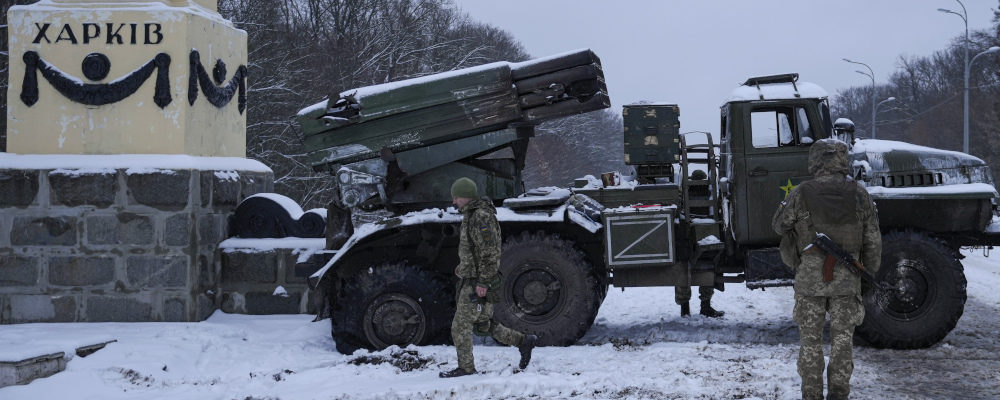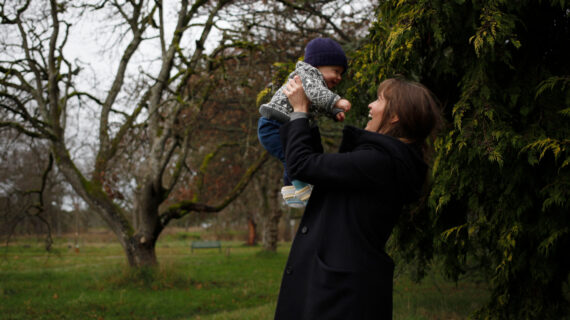At a dinner event marking the thirtieth anniversary of National Review on January 1, 1986, the magazine’s founder, William F. Buckley Jr., told the story of how he ultimately persuaded Whittaker Chambers, the communist-spy-turned-conservative-intellectual, to join the fledgling enterprise.
Chambers, who was known for his dark, obtruding pessimism, was initially unmoved by Buckley’s case for a journal of ideas dedicated to the defence of democracy, capitalism, and the virtues of a free society. He was convinced that the West was already doomed in its ideological struggle against communism and so any effort to save it was necessarily doomed to failure as well.
Yet as Buckley recounted in his remarks:
“…that night, challenged by his pessimism, I said to him that if it were so that Providence had rung up our license on liberty, stamping it as expired, the Republic deserved a journal that would argue the historical and moral case that we ought to have survived: that, weighing the alternative, the culture of liberty deserves to survive. So that even if the worst were to happen, the journal in which I hoped he would collaborate might serve, so to speak, as the diaries of Anne Frank had served, as absolute, dispositive proof that she should have survived, in place of her tormentors — who ultimately perished. In due course that argument prevailed, and Chambers joined the staff.”
I’ve thought about this story in recent days as we’ve witnessed the powerful images and videos of Ukrainian politicians and ordinary citizens expressing brave defiance in the face of Russian aggression.
Think of the reports for instance from the Associated Press that Ukrainian President Volodymyr Zelenskyy rejected calls from the American government to evacuate Kyiv and instead is now helping to lead the defence of his country’s capital city.
Or the CNN interview with Zelenskyy’s predecessor Petro Poroshenko who when asked how long Ukrainians would resist Russia’s occupation, answered in one word: forever.
Or the New York Times’ front-line interviews with ordinary Ukrainians who have taken up arms “to fight the Russian invaders” in defence of “everything [they] love.”
Or a story released by the Ukraine military of a young soldier named Yitaliy Volodymyrovych Skakun who courageously blew himself up on a bridge to stop Russian soldiers trying to advance.
Or the viral video of the old Ukraine woman who sought to give a Russian soldier sunflower seeds so that sunflowers (which are the country’s national flower) “will grow when you all lie down here.”
These extraordinary images and videos stand, as Buckley put it, as dispositive proof of the Ukrainians’ courage, grace, and strength in the face of an existential threat. No matter the outcome of Russia’s belligerence, they will provide posterity with overwhelming evidence that Ukrainian independence and self-determination ought to have survived in place of the country’s jackboot tormentors.
In the more immediate term, one gets the sense that these images and videos are having a profound effect on Western populations. A combination of factors – including war fatigue after the failures in Iraq and Afghanistan, the persistence of the COVID-19 pandemic, the slow-moving nature of Russia’s aggression, and our own decadence – had contributed to a tragic disconnect between the threat facing Ukraine and the West’s attention and investment. We failed the Ukrainians through a policy of self-absorbed neglect.
Yet the ubiquity of modern media means that we cannot hide from the consequences of such neglect. In a world of 24-hour news cycles and the pervasiveness of amateur journalism, it’s impossible to look away. We have no choice but to reckon with our collective choices.
Canadian public intellectual Marshall McLuhan understood better than anyone and certainly sooner than anyone the power of television and images in shaping our common cultural reference points including with respect to geopolitics and war. As he famously said of the Vietnam War: “Television brought the brutality of war into the comfort of the living room. Vietnam was lost in the living rooms of America – not on the battlefields of Vietnam.”
The opposite may be true in the context of Russia’s invasion of Ukraine. It’s hard to think that anyone could observe what we’ve seen in recent days – including images of Russian tanks and troops rolling into Ukraine, the brave resistance of ordinary Ukrainians, or even the extraordinary courage of Russians protesting in Saint Petersburg and Moscow – and not be moved. They’re something like a modern equivalent of Buckley’s persuasive case to Chambers.
On a personal note, I confess that that these images and videos have certainly influenced me. My initial response to Russia’s invasion wasn’t necessarily neo-isolationist but it was circumscribed due in large part to the formative experiences in Iraq and Afghanistan. And while I haven’t “gone full neocon,” I admit to having had a visceral reaction to the stories of extraordinary bravery and courage and the devastating images of kids.
We cannot let our hearts overtake our heads. These are complicated questions that have major geopolitical implications including for the great power competition with China. A forthcoming episode of our Hub Dialogues podcast with U.S. foreign policy expert Elbridge Colby will place our options vis-à-vis the Russia-Ukraine conflict in this broader context.
Yet even if we cannot afford to lose our heads in such a moment, we can still draw on Buckley’s powerful exculpation to Chambers. The culture of liberty deserves to survive and those of us who are marked by real privilege have some responsibility to protect, sustain, and strengthen it. If we fail to do so, posterity will rightly condemn us.




